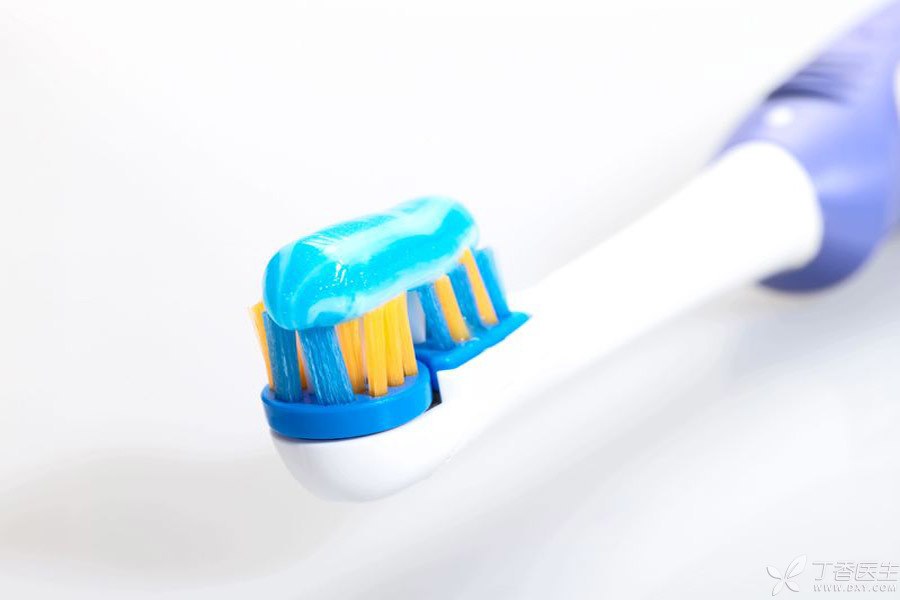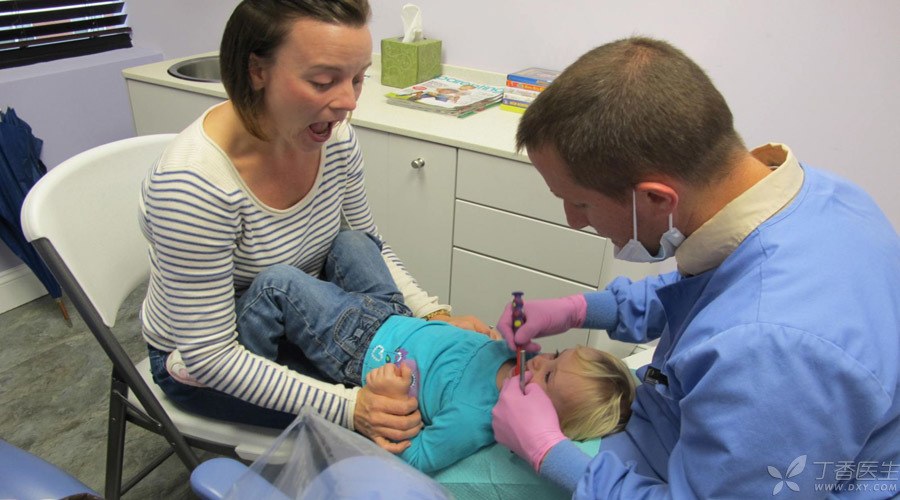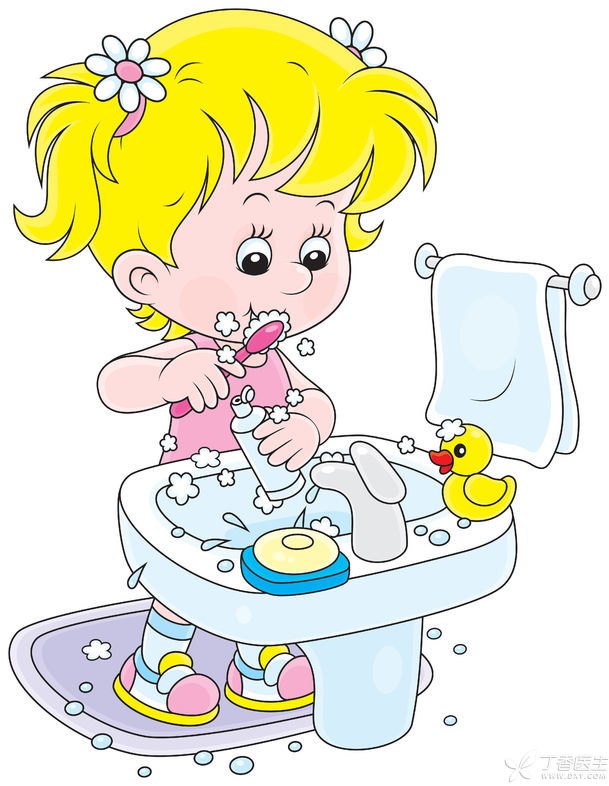Many mothers think that the baby’s deciduous teeth need to be changed anyway, and there is no need for special protection, and there is no requirement on the frequency of brushing the child’s teeth, let alone taking the child to have oral examinations regularly.
In fact, maintaining oral hygiene is something that starts from the moment the baby is born.
So, how can we help our baby develop a good tooth? Clove’s mother invited Dr. He Jianliang to tell everyone how babies of different ages should protect their teeth.

0 ~ 6 months
Many people will ask, does the newly born baby even have no teeth and need to brush his teeth?
Brush! At this stage, we emphasize the word [brush].
Whether you have teeth or not, keeping oral hygiene is a good thing to do from the beginning of your baby’s birth. For babies without teeth, mothers should wipe the baby’s oral mucosa with clean gauze or cotton balls dipped in water.
The process of wiping the baby’s oral cavity is actually helping the baby to check the oral cavity.
The child is very young and has not yet formed a strong immune system. Occasionally, fungal infection will occur and thrush will grow. It appears on the baby’s oral mucosa like white snowflakes. At this time, parents should take their children to the stomatology department for examination and treatment.
In addition to the children’s oral cavity should be cleaned regularly, children’s toys, tableware and bedding should be cleaned and disinfected regularly. After all, children don’t care so much, what will plug them into their mouths.
June ~ 3 years old
About 5 ~ 8 months, the baby will grow the first deciduous teeth in life, often the lower front teeth. Under normal circumstances, in the following two years or more, the baby will gradually grow all deciduous teeth, totaling 20.
However, almost no child can completely rely on himself to complete a standard and effective brushing of his teeth, which requires the help of his parents.
It sounds simple for parents to help their children brush their teeth completely or partially at least twice a day, but it can actually be very difficult to do it. Even for younger and uncooperative babies, the joint help of two adults is needed before [knee-to-knee technology] can be used to help children brush their teeth.

[Knee to Knee Technique]:
The dentist and the parent sat face to face, Knee touch or slightly interlock. The child first crosses the parent’s leg and faces the parent. Then, the parent slowly puts the child down until he is flat and his head is just on the dentist’s leg. The parent gently ties the child’s leg with his upper arm and gently holds the child’s hand with both hands. This allows the dentist to freely use both hands or gently hold the child’s head with one hand.
After the eruption of deciduous teeth begins, parents should take their babies to the stomatology department to see a doctor on a regular basis. On the one hand, the eruption of deciduous teeth should be evaluated and abnormal tooth development should be found in time. On the other hand, fluoride can be applied to children to prevent tooth decay. Since then, fluoride application once or twice a year is a key means to prevent tooth decay.
3 ~ 6 years old
Children gradually grow up and gradually begin to brush their teeth without the help of their parents. What parents can do is to help their children choose cleaning utensils, including toothbrushes, toothpaste, dental floss, etc. And guide and supervise children to brush their teeth regularly, floss, and check the effect of children brushing their teeth.
Parents should choose a small head toothbrush suitable for the size of the baby’s oral cavity. Bristles should be softer and thinner than adult toothbrushes. In the choice of toothpaste, try to choose fluoride toothpaste, but choose fluoride toothpaste for children, or when using ordinary fluoride toothpaste, pay attention to the dosage, and generally squeeze out toothpaste of rice grain size is enough.
In addition, parents are also responsible for helping their children check for tooth decay. Once tooth decay is found, they should take their children to the dentist to fill their teeth as soon as possible.
Many parents have a misconception that deciduous teeth will eventually be replaced by permanent teeth, and they will change their teeth if they are dragged.
You know, tooth decay in deciduous teeth will cause pain in children as well as affect chewing and beauty. Moreover, there is still a very long time before permanent teeth erupt and deciduous teeth are replaced.
After the age of 6

In fact, children after the age of 6 can already brush their teeth autonomously and effectively like adults. Now it is generally recommended to use [modified Babbitt brushing method] to brush teeth.
There are several key points of Babbitt brushing:
1, bristles 45 degrees toward the junction of gums and teeth, gently force;
2. Maintain small amplitude (2 ~ 3 teeth) horizontal tremor;
3. Brush to each surface of each tooth that can be brushed.
In addition to brushing your teeth, you should also teach your baby how to floss your teeth.
In addition, after the age of 6, Permanent teeth begin to erupt. The first permanent molar erupted at the age of 6 or so and the second permanent molar erupted at the age of 12 or so will have relatively deep pit and fissure on the occlusal surface, which is easy to form food residues and even lead to tooth decay. Therefore, when the crowns of these two teeth erupt completely, children should be taken to the dentist to do [pit and fissure sealing] to reduce the possibility of tooth decay.
A few days ago, I heard a very reasonable saying: [Your self-discipline is hidden in your teeth]. Teeth run through a child’s life, whether deciduous or permanent, should be well protected.
No matter how old you are in what, you should maintain good oral hygiene habits, including correct brushing and flossing. Especially in children who lack [self-discipline], you should eat less sugar and brush your teeth clean after eating sugar or other food to prevent tooth decay.
The most important thing is to invite professionals-dentists to do annual health checks for children: treat diseases and prevent diseases without diseases.
